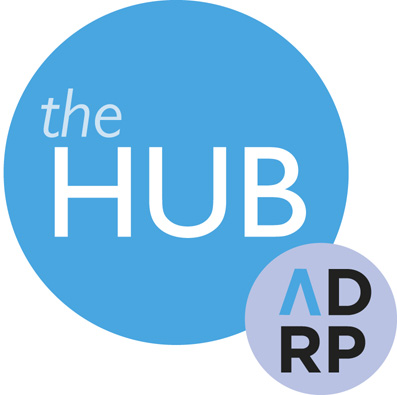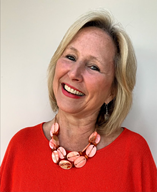|

Care and Feeding
of Donor Relations People
How to Love Your Donor Relations Self
Debbie Meyers
Founder and Chief Inspiration Officer, EDiT!

Photo Credit: Adobe Stock
Love in the time of COVID has produced many articles about self-care and why it’s important. Rest, stay hydrated, eat healthy food.
But what about professional self-care, particularly for us donor relations people? In a profession like ours that focuses on others, we need to be sure to take care of ourselves first.
Here are some practices to help us love our donor relations selves and keep that magic alive with our careers:
1. Ask for help when you need it.
Help can come in all kinds of packages. It’s more than just another pair of hands to pitch in schlepping those boxes of gift bags for the recognition gala. Help can be having the right software or equipment. It can be professional development, coaching, training, or mentoring.
Few of us knew all we needed to know two years ago when it came time to double our workload and produce two or three versions of everything: in-person and virtual events, printed pieces and digital communications, hybrid everything. We may have learned a lot of nifty things since then, but many of us are still expected to do twice as much work with the same or maybe even less budget and staff.
Help will not magically fall into your lap. You have to ask for it. And to ask for it, you have to believe you are worth it. (Hint: you are.) A good manager will do what is humanly possible to get you what you need to do your job, so don’t be afraid to ask.
2. Set healthy boundaries.
Ever feel like the world thinks that anything related to a donor is the responsibility of donor relations?
A donor got a parking ticket — it’s a donor, so get DR to handle it. Database needs an integrity scan — DR can do it since they know our donors. Wow, the trash cans are getting full — it’s papers about donors, so DR should take care of it.
What happens when you can’t do one more thing, and your boss comes in with one more thing for you to do? Do you cave and say OK, or are you equipped to ask for help prioritizing?
Kay Coughlin, a former donor relations professional who now specializes in helping caregivers, says, “No is a complete sentence, but it doesn’t exist in a vacuum. Most of us are never taught to develop the awareness and skills we need to handle the before, during, and after that comes with saying ‘no.’”
DR staff are expected to have many talents and skills: event planning, writing, data analysis . . . the list is endless. In a profession as varied as ours, setting limits and boundaries is survival. At some point, “other duties as assigned” has to end.
We can’t be all things to all people. Just because you CAN do something, or you’re good at something, doesn’t mean you should be the one to do it.
You do have the right to a manageable workload, and you can learn to thoughtfully and confidently say “no thank you” when you need to.
(To learn more about boundaries and other ways to take care of yourself, check out Kay’s webinars, podcasts, and other resources.)
3. Avoid having a professional inferiority complex.
Because much of what we do is often behind the scenes, we don’t always get the love and attention that frontline fundraisers and leadership enjoy. As a profession, we tend to be perfectly comfortable letting others take the spotlight.
And that’s OK, as long as we remember that even out of the spotlight, we are every bit as valuable to our organization as its celebrities. Just because we rarely get direct credit for bringing in gifts doesn’t mean we are second-class citizens.
Think of it in terms of It’s a Wonderful Life. What if your organization had no donor relations? This is who would disappear:
-
loyal donors, because nobody thanked them for their steadfast support;
-
leadership donors, because nobody told them why their gifts matter;
-
major donors, because no one was there to show how their gifts changed the world;
-
planned giving donors, because nobody engaged them enough to keep you in their wills.
DR people, we are the backbone of every advancement shop. Know that and believe that.
4. Share your successes.
A good way to avoid an inferiority complex is to let your colleagues know how your work helps them with their jobs. You don’t have to brag or boast. Just let them know how strongly you and your team are helping advancement meet its fundraising goals.
Example: “It was a great year for endowment reporting! As of date, # of donors have received their reports on # of funds for FY 00, one week earlier than last year. You can find copies of what they received XX. Please contact XX if you have any questions about YY.”
Notice that you didn’t boast about yourself once, but you did make it clear how many donors you touched, and you gave context to this gigantic process. You helped them do their jobs better by sharing information and offering to be a resource. Yay, you!
5. Let yourself off the hook for your mistakes.
You can’t change the past — what’s done is done. If you or someone on your team made a mistake, look ahead, not behind. What did you learn from the mistake? How will you prevent it from happening again? Did the error open some opportunities that might not otherwise have happened?
Personal example: years ago, I messed up an entire section in our printed honor roll. In response to my fall-on-the-sword apology letter, I received many kind notes from donors. AND — here’s the best part — that goof led to discussions about the donor phone book . . . I mean, donor honor roll . . . and how much time and money it cost. That was the last printed honor roll we sent. So look for that silver lining.
If you identify at all with being a perfectionist or people-pleaser — both of which can be occupational hazards of being in donor relations — letting yourself off the hook can be especially painful to consider. You’re not alone and there’s nothing wrong with you. If this causes you to squirm or want to hide more often than you’d like, lots of judgment-free help is available from mental health professionals and people who teach about self-awareness.
6. Learn a new skill or add to your knowledge reserves.
Taking the time to research a new skill, or improving one you’re a little rusty at, will make you feel revitalized and confident. New skills and greater knowledge also will make you a more valuable employee.
Learn how to master Excel pivot tables. Go on LinkedIn and read articles about philanthropy and donors. Become an expert at whatever database your advancement team uses. Find a mentor. Earn a certificate in something like virtual events or advancement writing.
A smarter you, and more talented you, will make yourself all that more loveable, to you and to others.
7. Make fun a priority.
Fun is contagious. It’s healthy for you, it’s healthy for your co-workers. The benefits are obvious, but we often forget to make fun a priority because dumpster fires draw our energy and attention. It’s hard to plan a team-building exercise or pancake breakfast when you’re in the middle of a CRM migration.
When you create fun, you see joy in others, and their joy becomes your joy. And joy is a key ingredient in loving yourself.
Feel like you don’t have time? Well, guess what: we spend half our waking hours at work. Some part of it HAS to be fun. Not all day every day, but some of your work week needs to be fun. Make it a priority by planning for it — not in a contrived, obvious way, but at some intentional frequency that reminds you to make the effort. (Sounds kinda like individualized stewardship plans, doesn’t it?)
8. Practice gratitude.
Gratitude is one of the simplest ways to focus on the good in yourself and in your life. It makes you a more grounded, gracious person. Maybe because expressing gratitude is what we do for a living, though, it’s hard sometimes to express our own gratefulness and appreciation to ourselves.
In her book In Gratitude -- The Power of a Thank You Note, Jennifer Richwine tells how writing thank you notes regularly and often can change your life and the life of the person you write to, for the better. Like fun, gratitude is also contagious.
Make it a habit. Every morning, before you get out of bed, as you begin to get things into focus, make one of your first thoughts something you’re grateful for. It’s a perfect way to start the day.
9. Resist using language that undermines you.
First, read this article on Tara Mohr. Though the article specifically addresses women, the concepts apply to everyone.
She talks about the importance of avoiding seemingly harmless phrases like “does that make sense?” (as if our listeners are stupid or we weren’t clear) and “I just wanted to say” (as if we’re apologizing).
Speaking of apologizing, she talks about women’s unconscious habit of saying “I’m sorry”: “…to apologize before asking a question, to apologize because they are standing at the milk and sugar station at the café while someone else is waiting for their turn, to apologize in all kinds of situations where an apology is not warranted! We apologize simply for taking up space.”
All of us in donor relations may be called on to apologize to an irate donor, sometimes for something we personally didn’t do, or for something that wasn’t even a mistake. In these instances, thank the donor for bringing the issue to your attention, then calmly deal with the issue to fix it or prevent it from happening again.
Naturally, if you made a mistake, do apologize. Be gracious and thoughtful wherever possible, but don’t apologize for breathing.
10. Know yourself, be yourself.
You will find millions of articles on these simple concepts, so for our purposes, let’s talk about you in the workplace. Knowing who you are, your strengths and weaknesses, your values and priorities, will drive your career.
This article lists some dangers of not knowing ourselves. If we’re too modest, we may miss out on great new adventures and promotions. If we’re too ambitious, we are unrealistic and doomed to failure. And worst of all, if we aren’t self-aware, we don’t see the ways we may be hard to work with or work for.
Knowing yourself also means knowing when it’s time to leave a job. When you spend more time stressed out and miserable than you do feeling happy and fulfilled, you need to listen to your heart. Feelings aren’t right or wrong, they just are. And they’re your friends, providing you with valuable information. Sometimes loving yourself means leaving a bad situation.
In a chicken-or-egg model, does being yourself lead to loving yourself, or does loving yourself lead to being yourself? Both. If you’re at peace with who you are, and you’re the best you possible, then you are bound to love yourself. Conversely, if you love yourself, you have no choice but to be authentic and real.
In conclusion, there’s no better way to end an inspirational article on loving yourself than by quoting Maya Angelou: “Your crown has been bought and paid for. Put it on your head and wear it.”
Wishing you all the love your heart can hold!
While love is in the air for February, be sure to catch some for yourself!
“Care and Feeding of Donor Relations People” is devoted to mental health topics just for us.
Join our community in My ADRP for inspirational messages and info on upcoming webinars and virtual discussions. Also, look for C&F each month in The Hub.
 Having worked in advancement for more than 30 years, Debbie Meyers has honed her editorial skills by writing countless acknowledgments, talking points, proposals, gift agreements, and impact reports. Having worked in advancement for more than 30 years, Debbie Meyers has honed her editorial skills by writing countless acknowledgments, talking points, proposals, gift agreements, and impact reports.
During that time, she created or enhanced operations, communications, donor relations, and stewardship programs at Chautauqua Institution, the University of Maryland, Carnegie Mellon University, and the University of Florida. She also built communications and development programs for a Catholic high school, an art museum, and a health center development office.
An ADRP founding board member, she chaired the international conference in 2011 and has presented at every other one.
Living in married bliss in Mayville, NY, with her high school drum major, Paul, she has four grown children and three grandchildren, along with two rescue mutts: Bo, a pit-lab, and Marco Polo, a chihuahua.
In 2022, we would love to hear your voice and benefit from your experience, so please consider submitting an article to The Hub!

Back to the February 2022 Hub
|